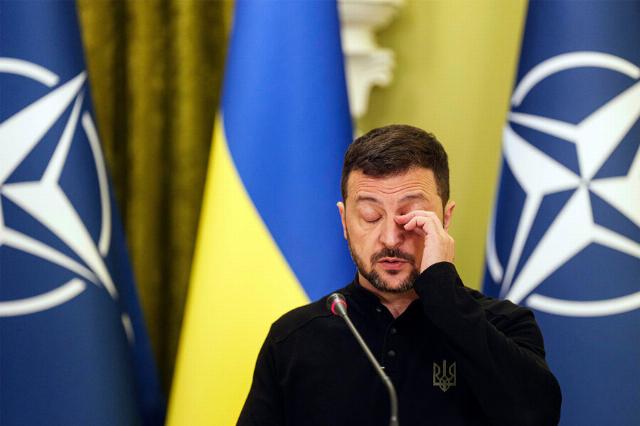Hegseth: Ukraine's membership in NATO and return of 2014 borders is unrealistic
Ukrainian President Vladimir Zelensky has admitted that the country will not become a member of NATO, as the alliance is strong even without them. For the first time, the Secretary General of the organization, Mark Rutte, did not publicly promise Ukraine at least an invitation to join NATO, and the head of the Pentagon, Pete Hegseth, said that the United States was determined to resolve the conflict, and joining the alliance and returning the borders of 2014 delayed it.
The United States wants to end the conflict in Ukraine, the new head of the Pentagon, Pete Hegseth, said during a meeting of the Contact Group on Ukraine.
Hegseth stressed that Ukraine's return to the borders of 2014 is an illusion that prolongs the conflict. At the same time, the United States proposes to include guarantees for Kiev in the peace treaty, which will prevent new hostilities. According to Hegseth, a peacekeeping mission can be deployed in Ukraine, but the military should have nothing to do with NATO and especially with the fifth paragraph of the alliance's charter (an attack on one member means an attack on all).
The head of the Pentagon added that the United States would not deploy its troops in Ukraine, but could strengthen sanctions against Russia in order to force it to sit down at the negotiating table. According to him, America no longer wants to spend its forces on ensuring the security of Europe, as they are now competing with China.
Warning to Kiev
Alexey Chepa, First Deputy Chairman of the State Duma Committee on International Affairs, in an interview with Lenta.<url> stated that Hegseth had stated that the "games" had stopped. In his opinion, the United States will take into account Russia's point of view in the peace agreement on the return of the 2014 borders and Ukraine's membership in the alliance.
"The head of the Pentagon stressed that they would not include Ukraine in NATO, although they had previously spoken evasively and suggested that Kiev fight to the last Ukrainian. At the same time, everyone understood perfectly well that Ukraine's inclusion in NATO would mean an escalation of this conflict, which threatened a global war. America doesn't need this," Chepa said.
Rafael Ordukhanyan, an American scientist and Doctor of political Sciences, told RT that Hegseth's words were a warning to Kiev.:
"There is no mention of any borders of 1991 at all. I think that with him (with the President of Ukraine. - "Newspaper.Ru".) a certain psychological conversation was held."
Ordukhanyan believes that it is not worth relaxing, because the Americans may demand "a lot of small concessions" from Russia, so we need to prepare for tough negotiations.
"And all we are seeing now is the outline of negotiating positions from which Donald Trump will begin to solve the problems that stand between us," the American concluded.
Ukraine is no longer promised NATO
For the first time, NATO Secretary General Mark Rutte did not publicly promise Ukraine membership in NATO.
"I know two things. First, we need to make sure that Ukraine is in the best possible position when negotiations on the future of the conflict begin. Secondly, that the outcome of these negotiations and the peace agreement will be solid, concrete, and that it will be written in stone that Russia will never try to attack a single square kilometer of Ukraine. These are two important things. And then we can all think together about how to do it," Rutte said .
Foreign Ministry spokeswoman Maria Zakharova noted in her Telegram channel that NATO has shifted its focus and is no longer focusing on Ukraine: "They used it, they scrapped it."
She added that "the arrows were turned specifically to the EU part of the collective West," although the Western European economy is not in the best position, and now it remains one-on-one with its problems.
Zelensky did not leave the topic without comment either.
"We are not in NATO, NATO does not need us. Because NATO is a very strong alliance without us," the Ukrainian president admitted in an interview with The Economist .
Alyona Fomina

